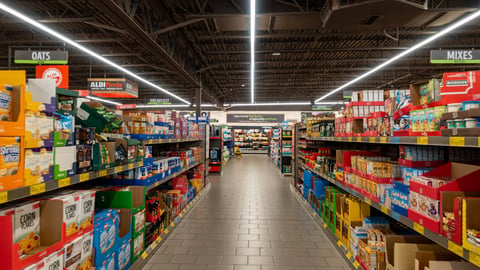Recession Concerns Grow With Consumers
A majority of U.S. consumers are concerned about their financial well being and tariffs are top of mind with more than 7-in-10 saying they expect a recession in the coming months, according to new research from Numerator.
On the issues of tariffs, 89% of U.S. shoppers said they are aware of new or proposed tariffs, up 6% from February and 36% from December of 2024. As tariffs have moved to the forefront of political conversations, 40% of consumers say they fully grasp how tariffs impact prices, up from 34% in February. Nearly half (48%) say they have a general idea but lack details, while 11% admit having little-to-no understanding of the issue.
Notability, 85% of consumers expressed concern about how tariffs will affect their personal finances and shopping behaviors, up four points from February.
In total, 55% of U.S. households believe tariffs will be bad for the U.S. economy during the next year, with 21% unsure and 24% saying tariffs will have a positive impact. These sentiments were represented across the political spectrum, even in areas of the country that supported President Trump in November.
The issue of tariffs have further soured consumers’ view of the U.S. economic climate with 72% very or somewhat concerned about a recession occurring in the coming year. According to Numerator, the unease is felt across the political spectrum. In areas of the country that voted overwhelmingly for the President, 63% of households are very or somewhat concerned about an upcoming recession.
Other notable findings from Numerator’s survey include:
• 72% of consumers are worried about higher prices on everyday goods (vs. 64% in February), 50% about limited availability of certain products (vs. 44%), 39% about a potential slowdown in economic growth (vs. 25%), and 21% about job or industry impacts (vs. 13%)
• Shoppers worry most about tariff-related price increases in essential categories such as groceries (60%), household goods (42%), and gasoline (40%). All categories except gasoline saw increased concern from February to April, especially household goods (+8 points), automobiles (+7 points), home appliances (+7 points) and personal care products (+6 points)
• 83% of consumers anticipate making changes to their shopping behaviors in preparation for new tariffs. Almost half of consumers say they will look for sales or coupons (48%), followed by delaying purchases until prices stabilize (32%), buying fewer imported goods (32%), stocking up on items prior to tariff-induced price increases (31%), and switching to U.S.-made alternatives (25%). Switching to U.S.-made products was the only reaction that declined in the past two months (-2 points), while delaying purchases (+10 points) and stocking up (+8 points) saw the largest increases.




